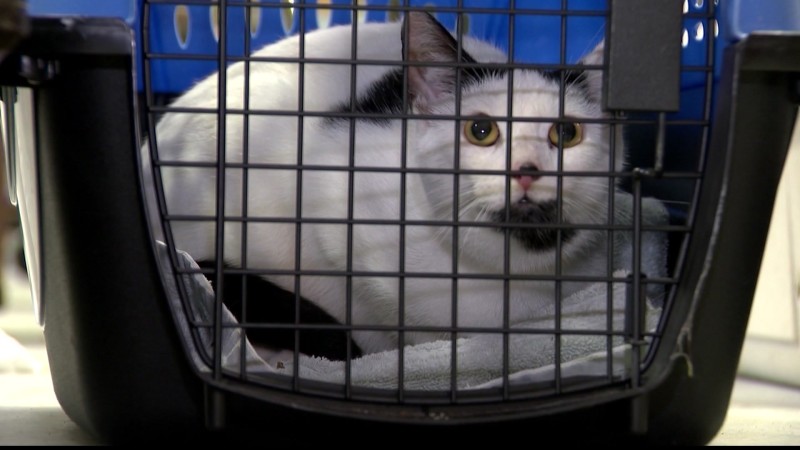Family found with 106 cats in their Connecticut home
In June 2022, 106 cats were removed by animal control from a home in Winchester, Connecticut. James and Laura Thomen, the residents of the home and grandparents of two children, ages ten and six, and Marissa O’Brien live in the home with the many cats. The trio was charged with 106 counts of animal cruelty and 2 counts of risk of injury to minors for cruelly keeping those children and animals in unlivable and disgusting conditions.
Animal hoarding has been an issue for many years, and it’s often not solved until it becomes an extreme issue like this case.
Animal hoarding is a mental illness defined as an accumulation of animals that has overwhelmed a person’s ability to properly care for their pets (not providing proper sanitation, nutrition, socialization, veterinary care, etc. according to ASPCA) the animals are forced to live in filthy and deplorable conditions that lead to health issues and poor behavior.
In severe cases, the animals live in cramped carriers or crates and are trying to survive in their own urine and feces. They are often obese and overfed or malnourished and emaciated. They might even be found deceased. These conditions are horrendous for a human to be living in, even worse a pet.
“It’s so upsetting to see the animals in homes like this, the rescue I’m with often gets animals from these situations and it’s just so cruel,” said Lucy Dias, a pet foster and an avid animal lover in an interview with The Greyhound News.
Hoarding often begins with a few unsterilized pets kept in close proximity or the desire to rescue a large number of animals. The number of pets can quickly multiply and become unmanageable for the caregiver. It can also begin due to a financial or health issue that causes the person not to be able to properly care for the animals as they did before.
The right thing to do would be to just give them to somebody who can take care of them, but emotional attachments often are an obstacle that is a part of animal hoarding.
The complaints of a strong order coming from the Thomen residence first began in early June. According to responding officers, the home had an “unbearable scent” of ammonia and cat urine. The cats found in the home were covered in fleas and had severe upper respiratory infections and eye infections. The house was covered in cats, from the living room to the kitchen, even on countertops. During the clean-out, two kittens were found in a box inside the freezer. It took over two weeks to rescue all the animals from home.
The minors that lived in the home have been placed with other relatives by DCF and the cats are now being cared for and treated by volunteers.
In March 2020, William and Cheryl Grau Articas were arrested and charged with 118 counts of animal cruelty after a two-month-long investigation. Their pets, dogs this time, were being kept in a small, fenced area, which was not adequate for these larger dogs. They looked extremely malnourished but were so happy to be saved in the video taken by First Coast News.
While law enforcement searched the property, they found the fresh remains of one dog and the skeletal remains of two other dogs. But this was not a surprise visit. Grau and Articas were visited two months prior and told that the dogs would be taken if they did not improve the living conditions for the dogs in sixty days. Unfortunately, conditions only got worse. The dogs were in need of veterinary care but were to be put up for adoption after their health improved.
No animal or child should have to live in these conditions. Hoarding is often a mental issue, not intentional cruelty. Intentional or not, things like this need to be reported, even if it’s just a suspicion. The animals do not choose to live this way.
If you suspect animal abuse or mistreatment, please call an emergency number or your local animal control to help these poor animals.

I am a Junior. I am studying Journalism because I really like to write and I took it last year. In the future, I would like to pursue a career in writing.








